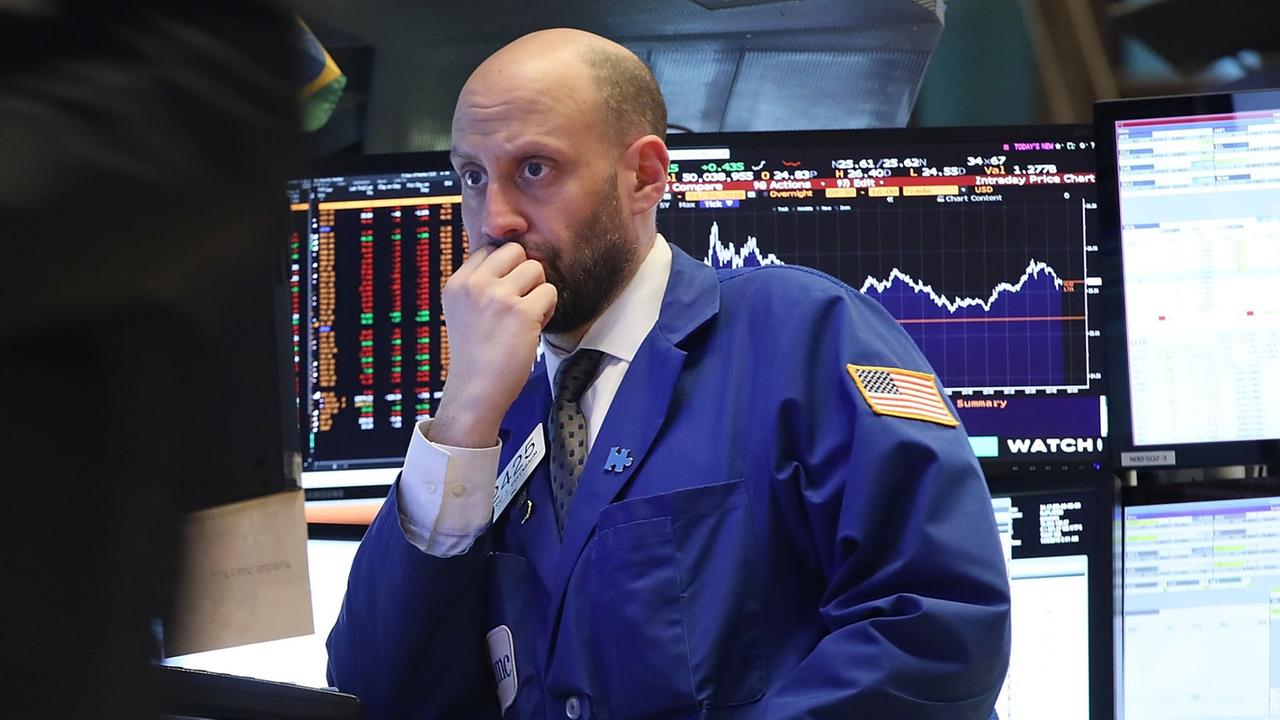market report
The buoyant phase on Wall Street after Donald Trump's re-election has apparently come to an end. Technology stocks in particular lost ground. The DAX had also previously weakened.
The leading index Dow Jones, which started the week with a record high on Monday, lost 0.7 percent to 43,444 points at the end of the week. In the election week, the index rose by 4.6 percent in response to Trump's election victory and reached highs for three days in a row. On a weekly basis, the Dow lost 1.3 percent.
“We can attribute market participants' reluctance to several factors: the high prices following last week's rally, the speed with which bond yields have risen again, and uncertainty about the Fed's ability to do so “to cut interest rates next year,” said Timothy Chubb, chief investor at asset manager Girard.
The broad S&P 500 fell by 1.3 percent to 5,870 points. The technology-heavy Nasdaq 100 fell by 2.4 percent to 20,394 points. Like the Dow, both indices reached record highs on Monday and consolidated at high levels as the week progressed.
Headwind came in particular from the Federal Reserve: Yesterday, Fed Chairman Jerome Powell dampened investors' expectations of an interest rate cut in December. Powell said there was no need for hasty rate cuts. After all, the economy continues to grow, the labor market is stable and inflation is still above the target of two percent.
“A total of three key interest rate cuts of 0.25 percent each will be priced into the US money markets by the end of 2025. At the end of October there were at least twice as many,” says DZ Bank. Although this tends to put a strain on the stock markets, experts believe that developments on the US bond market are currently taking a back seat due to hopes of a new approach to tax and trade policy under Donald Trump.
Strong US retail sales also caused frustration. They rose somewhat more significantly than expected in October. This fueled concerns that the Fed would not cut interest rates in December. The central bankers are trying to curb inflation with tight monetary policy without strangling the economy.
The prospect of less powerful interest rate cuts in the USA is also weighing on stock trading here: the DAX had previously closed with a discount of 0.3 percent at 19,210 points. On a weekly basis, the DAX barely moved despite significant fluctuations. At least the record from mid-October of 19,674 points remains within sight.
A correction after the strong price gains in New York is overdue and healthy, says Jochen Stanzl, market observer at CMC Markets. Robert Halver, market expert at Baader Bank, believes the DAX will continue its year-end rally. His thesis is that investors who did not position themselves before the US elections feared missing out on further increases.
Robert Greil, chief strategist at Merck Finck, is a little more cautious: “The year-end rally will only take place on Wall Street this year and probably not in Europe or Asia,” says the expert with a view to the economic situation. While the feared uncertainty is not occurring in the USA and the economic outlook is positive, the opposite applies to Europe's largest economy, says Warburg economist Carsten Klude, describing the economic situation in Germany.
The EU Commission's current growth forecast supports this assessment. It lowered its expectations again for this year and currently expects economic output to decline by 0.1 percent. It expects growth of 0.7 percent for 2025. For the entire Eurozone, the EU Commission continues to expect growth of 0.8 percent this year and 1.3 percent next year.
Russia will stop its gas deliveries to Austria from Saturday, according to the Austrian energy company OMV. The partially state-owned OMV announced that OMV had received relevant information from Gazprom Export. The stop of deliveries is in response to an arbitration ruling by the International Chamber of Commerce, which awarded OMV 230 million euros in the dispute with Gazprom.
The company's focus is on Evotec. The US company Halozyme Therapeutics wants to take over the Hamburg biotech company for around two billion euros and is offering eleven euros per share. The Evotec shares listed in the SDAX are rising rapidly. The offer could lead to a takeover battle.
A disappointing outlook from Applied Materials is pushing the shares of semiconductor companies into the red. Infineon in the DAX, Aixtron and Siltronic in the MDAX as well as Süss Microtec and Elmos Semiconductor in the SDAX are among the losers. Applied Materials said there are signals that some semiconductor customers may hold off on placing orders for the time being.
The prospect of a US health minister who is critical of vaccinations is causing the shares of European vaccine manufacturers to collapse. BioNTech shares are slipping in Frankfurt, and GSK and AstraZeneca stocks are under pressure in London. Things are going downhill for Sanofi in Paris.
US President-elect Donald Trump nominated Robert F. Kennedy Jr., who has called for stricter testing of vaccines, for the post of Health Secretary yesterday. Shares in US pharmaceutical companies Pfizer and Moderna fell as much as two percent in after-hours trading on Wall Street following news of Kennedy's nomination.
The world's largest container shipping company MSC has free rein to join the Hamburg port operator HHLA. As can be seen from a mandatory publication on the MSC website, the Ukrainian competition authorities have now given the green light. This means that all closing conditions described in the offer documents have been met, it said.
Because of possible additional US tariffs on Chinese goods, the world's largest PC manufacturer Lenovo wants to build more plants outside the People's Republic. Among other things, a factory is planned in Saudi Arabia, said company boss Yang Yuanqing. Yang also announced surprisingly strong quarterly results thanks to the AI boom.
The Italian insurer Generali performed better than expected in the third quarter. The operating result across the group increased by a quarter year-on-year to almost 1.7 billion euros, as the Allianz rival announced today in Turin. Analysts surveyed by Bloomberg had only expected a good 1.5 billion euros. The increase was particularly significant in property and casualty insurance.




